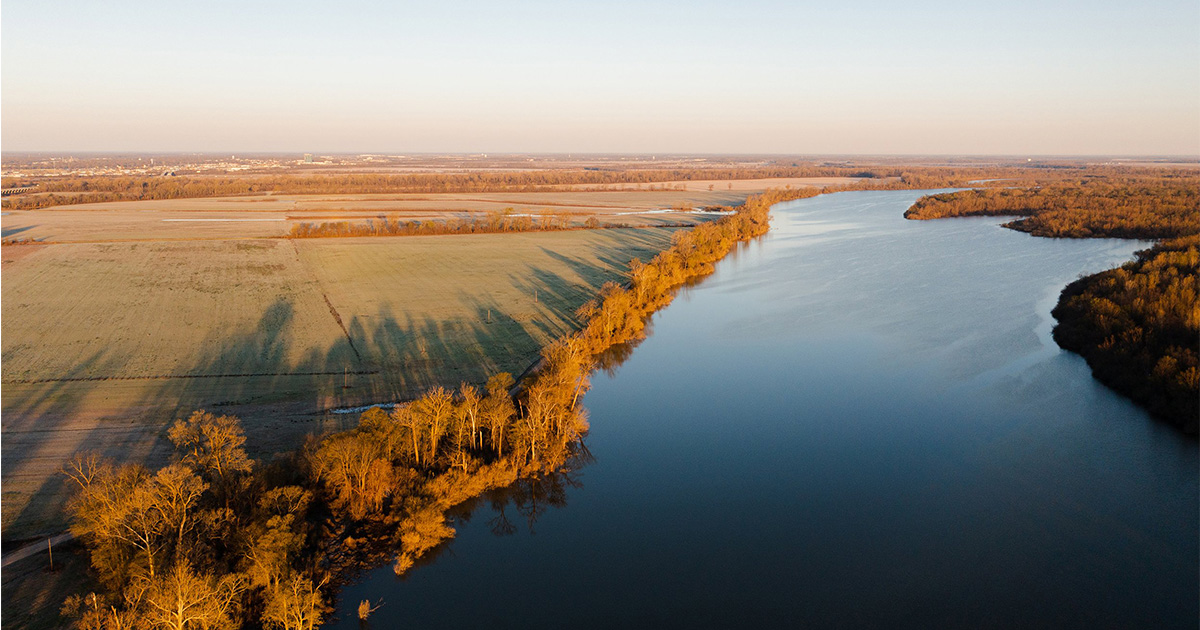DU, MRCTI and partners celebrate $16 million to boost wetlands and outdoor recreation
New Infrastructure grant will help partnering organizations restore floodplains and enhance outdoor recreation opportunities along the lower Mississippi River
New Infrastructure grant will help partnering organizations restore floodplains and enhance outdoor recreation opportunities along the lower Mississippi River

Wetlands and recreational space in West Memphis, Arkansas, are getting a boost through the help of a recent infrastructure grant and collaborative efforts between several partnering organizations. The U.S. Department of Transportation (DOT) awarded $16,155,550 through DOT’s Promoting Resilient Operations for Transformative, Efficient and Cost-Saving Transportation (PROTECT) program to restore hundreds of acres of Mississippi River floodplain with wetlands and riparian forest at Ducks Unlimited Park at Big River Crossing, a 1,500-acre project led by Big River Park Conservancy and Ducks Unlimited (DU).
"This is a big win for our community, environment, and Ducks Unlimited Park at Big River Crossing," said West Memphis Mayor Marco McClendon. "Thanks to the Department of Transportation's PROTECT program, this project will create a destination space for outdoor enthusiasts and our families to play, learn, and grow together. Our partnership with Ducks Unlimited, Big River Park Conservancy, MRCTI and other key stakeholders showcases what we can do when we come together for the greater good of our communities and our planet. It’s a proud moment for all of us in West Memphis and our entire region.”
DU, a global leader in waterfowl and wetlands conservation, and Mississippi River Cities and Towns Initiative (MRCTI), a coalition of over 100 mayors of cities advocating for restoration and enhancement of the River corridor, are among two of the several partners involved in the Big River Park Conservancy project. In the spring of 2021, DU and MRCTI signed a Memorandum of Common Purpose, signaling the shared goal of restoring wetlands and waterfowl habitat, mitigating flood and drought risks, and increasing economically important recreation opportunities along the River corridor.
"Waterfowl, wildlife and people depend on the Mississippi Alluvial Valley for their daily needs," said Dr. Ellen Herbert, DU senior scientist. "Teaming up with MRCTI and its mayors in a common effort to promote and implement sustainable and ecologically beneficial projects for communities has been crucial in helping protect vital habitat and restore natural floodplain functions along the Mississippi River and its tributaries."
DU and MRCTI have identified 100,000 acres along the Mississippi River Basin that need infrastructure assistance for problems such as flooding, drought and nutrient pollution. These projects, comprised of wetlands, marshes, forests, connected backwater areas and reconnected floodplains, will directly benefit ten states and 45 cities improving, recreational opportunities, economic development and natural infrastructure.
“The Memphis Metropolitan area is proud to be leading the way in nature-based solutions, joining the St. Louis and Quad Cities metro areas as places on the Mississippi River to obtain federal funding for an innovative river-wide partnership,” said Memphis Mayor Paul Young. “While these projects are not directly in the city of Memphis, their combined effects—providing clean water, protecting infrastructure, reducing flooding, and alleviating drought—will have tangible benefits to our city and the nation.”
Ducks Unlimited Park at Big River Crossing is just one of the several projects in the DU-MRCTI pipeline that has suffered floodplain degradation and severe flooding in recent years.
DU is leading the conservation strategy, returning the land to its natural habitat and introducing further options for outdoor recreation, including new trails, a welcome pavilion with an outdoor classroom and restrooms and an off-leash retriever training dog park over the coming years.
Ducks Unlimited uses cookies to enhance your browsing experience, optimize site functionality, analyze traffic, and deliver personalized advertising through third parties. By continuing to use this site, you agree to our use of cookies. View Privacy Policy